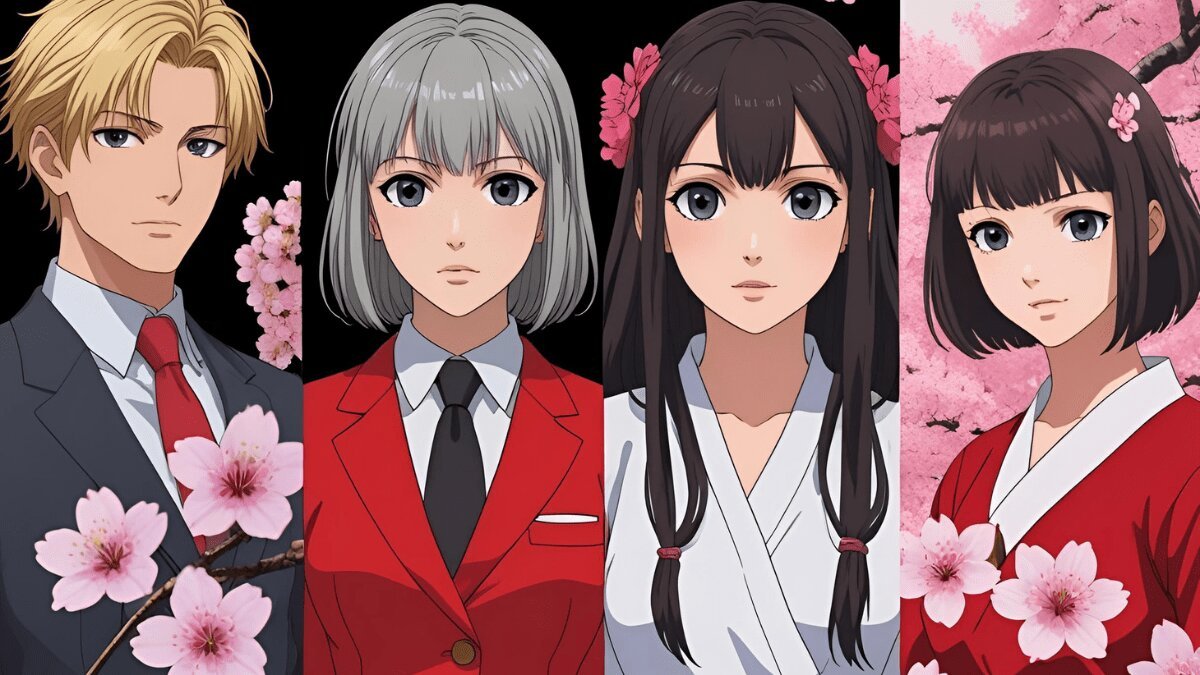Why Traditional Japanese Themes Matter in Anime
Japanese anime has long served as a powerful medium to convey not only imaginative stories but also to preserve, reimagine, and showcase traditional Japanese values and cultural heritage. While futuristic tales and fantasy worlds dominate mainstream popularity, many anime titles serve as bridges between generations, illuminating ancient rituals, folklore, and philosophies rooted in Japan’s historical past.
We will journey through five standout anime that explore Japan’s traditional customs—whether it’s through elegant tea ceremonies, supernatural yokai tales, shrine life, or Edo-period drama. These anime not only entertain but also educate, offering rich textures of Japanese life, both mystical and mundane. If you’re a fan of cultural storytelling or just curious about Japan’s traditions, these anime are an essential watch.
1. Mushishi (2005–2006, 2014)
-
Genre: Supernatural, Mystery, Historical
-
Episodes: 26 + 10 (sequel)
-
Streaming Platforms: Crunchyroll, Hulu
Overview
Mushishi follows Ginko, a wandering “Mushi Master,” who studies mysterious creatures called mushi—ethereal beings connected to nature and life itself. Each episode is a standalone tale exploring a different village, phenomenon, or spiritual imbalance.
Cultural Themes Explored
The series is deeply rooted in Shinto beliefs about the natural world and animism. It explores the Japanese view of balance between humans and nature, and how unseen spiritual forces influence daily life. Ginko serves as a healer and mediator, much like a traditional spiritualist.
Why It’s Culturally Significant
With minimalist art and a quiet, meditative tone, Mushishi immerses viewers in rural Japan’s untouched beauty and spiritualism. It pays homage to traditional medicine, village lore, and the old-world respect for nature’s mysteries.
2. Natsume’s Book of Friends (Natsume Yūjin-chō, 2008–2017)
-
Genre: Supernatural, Drama, Slice of Life
-
Episodes: 74 episodes across 6 seasons
-
Streaming Platforms: Crunchyroll, Funimation
Overview
Teenager Takashi Natsume inherits a book from his grandmother containing the names of yokai she once bound. Now, with the help of a feline spirit named Nyanko-sensei, he sets out to return those names and free the yokai.
Cultural Themes Explored
Natsume’s Book of Friends dives deeply into traditional Japanese folklore and spiritualism, especially regarding yokai (Japanese spirits). The series highlights shrine rituals, seasonal festivals, and the thin veil between the human and spirit worlds.
Why It’s Culturally Significant
This anime emphasizes harmony, forgiveness, and the concept of “wa” (peace and balance). It captures both the loneliness and warmth of rural life and explores how Japanese culture values interpersonal and spiritual connections.
3. Mononoke (2007)
-
Genre: Psychological, Horror, Supernatural, Historical
-
Episodes: 12
-
Streaming Platforms: Crunchyroll, Amazon Prime
Overview
Mononoke follows a mysterious Medicine Seller as he travels through historical Japan, exorcising malevolent spirits (mononoke). Each story arc involves solving the spirit’s origin, form, and truth before it can be banished.
Cultural Themes Explored
This anime is heavily steeped in Edo-period aesthetics, incorporating traditional art styles like ukiyo-e (woodblock prints), Japanese ghost stories (kaidan), and Buddhist principles about the afterlife and karma.
Why It’s Culturally Significant
Visually experimental and symbolically rich, Mononoke is a masterclass in blending folklore, ritual, and traditional storytelling techniques. Its deep psychological themes and ritualistic exorcism elements reflect ancient Japanese beliefs about impurity and redemption.
4. InuYasha (2000–2004, 2009–2010)
-
Genre: Fantasy, Action, Romance, Historical
-
Episodes: 193 (original + sequel)
-
Streaming Platforms: Netflix, Crunchyroll, Hulu
Overview
Modern-day schoolgirl Kagome is transported to Japan’s Sengoku period where she meets half-demon InuYasha. Together they collect shards of the powerful Shikon Jewel while battling demons and confronting their pasts.
Cultural Themes Explored
InuYasha mixes samurai-era history with Japanese mythology. It references Buddhist temples, yokai, sacred arrows, talismans, and feudal customs like honor, loyalty, and spiritual cleansing. The presence of monks, priestesses, and demons reflects Japan’s syncretic religious practices.
Why It’s Culturally Significant
Beyond its romantic action-adventure, InuYasha is a love letter to Japan’s mythic past, full of references to ancient creatures, religious rituals, and moral philosophies deeply embedded in Japanese heritage.
5. Hyouka (2012)
-
Genre: Mystery, Slice of Life, School
-
Episodes: 22
-
Streaming Platforms: Crunchyroll, Funimation
Overview
Oreki Houtarou joins the school’s Classic Literature Club and, along with his friends, investigates small mysteries linked to the school’s history and his community’s traditions.
Cultural Themes Explored
Hyouka may appear modern, but it subtly emphasizes traditional values like modesty, respect, and intellectual pursuit. It highlights Japanese school culture, festivals, traditional poetry, and the art of storytelling.
Why It’s Culturally Significant
The anime uses everyday settings to reflect Japan’s quiet dignity, preserving cultural customs even within modern youth. It’s a celebration of classical Japanese intellect and heritage through the lens of coming-of-age discovery.
Conclusion: A Tribute to Tradition Through Animation
Japanese anime does more than entertain—it acts as a time capsule, preserving and passing down the country’s traditional values, myths, and way of life. The five anime listed above are exemplary not just in storytelling and artistry but in their ability to bridge ancient wisdom with modern imagination.
Whether it’s the supernatural elegance of Mushishi, the nostalgic beauty of Natsume’s Book of Friends, or the historical gravitas of Mononoke and InuYasha, these shows connect us to the heart of Japan’s spiritual and cultural identity. Watching them isn’t just an escape—it’s an education in legacy, reverence, and human connection.
If you’re looking to dive deeper into Japanese culture through anime, these series are an unforgettable gateway to the traditions that continue to shape modern Japan.


